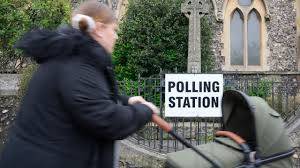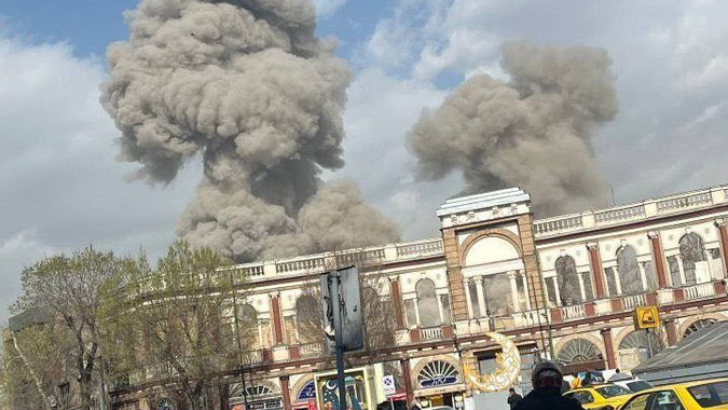UK's governing Conservatives suffer big losses in local polls
Labour won control of councils in England it hasn't held for decades and was successful in a special by-election for Parliament that if repeated in a general election in coming months, would lead to one of the Conservative's biggest-ever defeats
AP
-
Representational photo
London, 3 May
Britain's governing Conservative
Party is suffering heavy losses as an array of election results pour in Friday,
piling pressure on Prime Minister Rishi Sunak ahead of a UK general election in
which the main opposition Labour Party appears increasingly likely to return to
power after 14 years.
Labour won control of councils in
England it hasn't held for decades and was successful in a special by-election
for Parliament that if repeated in a general election in coming months, would
lead to one of the Conservative's biggest-ever defeats. Its only negative for
Labour has been in some areas with large Muslim populations, such as Oldham in
northwest England, where the party's candidates appear to have suffered as a
result of leader Keir Starmer's strongly pro-Israel stance in the conflict in
Gaza.
Perhaps most important in the
context of the looming general election, which has to take place by January but
could come as soon as next month, Labour won back Blackpool South in the
northwest of England that went Conservative in the last general election in
2019, when then-Prime Minister Boris Johnson won a big victory.
In the contest, triggered by the
resignation of a Conservative lawmaker following a lobbying scandal, Labour's
Chris Webb secured 10,825 votes, 7,607 more than his second-placed Conservative
opponent. “This seismic win in Blackpool South is the most important result
today," Starmer said. “This is the one contest where voters had the chance
to send a message to Rishi Sunak's Conservatives directly, and that message is
an overwhelming vote for change."
Thursday's elections were important
in themselves, with voters deciding who will run many aspects of their daily
lives, such as garbage collection, road maintenance and local crime prevention,
in the coming years. But with a general election looming, they will be viewed
through a national prism.
The results so far provide more
evidence that Labour is likely to form the next government — and by quite a
margin — and that Starmer will become prime minister.
As of Friday morning, with barely a
quarter of the 2,661 seats up for grabs counted, the Conservatives were down
122 while Labour was up 52. Other parties, such as the centrist Liberal
Democrats and the Green Party are also making gains. Reform UK, which is trying
to usurp the Conservatives from the right, can also point to a successful set
of election results, even thought it contested a minority of council seats.
The party's threat to the
Conservatives was evident in Blackpool South, where it was less than 200 votes
from second place.
Labour has won in areas, which
voted heavily for Britain's departure from the European Union and where it was
crushed by Johnson, such as Hartlepool in the northeast of England, and
Thurrock in southeast England. It also seized control of Rushmoor, a leafy and
military-heavy council in the south of England where it has never won.
John Curtice, professor of politics
at the University of Strathclyde, said the results so far indicate that the
Conservatives are losing around half of the seats they are trying to defend. “We
are probably looking at certainly one of the worst, if not the worst,
Conservative performances in local government elections for the last 40
years," he told BBC radio.
The results will roll in through
Saturday. Sunak hopes that he can point to successes, notably in several key
mayoral races, to douse talk that the Conservative Party will change its leader
again before the UK's main election.
Leave a Reply
Your email address will not be published. Required fields are marked *












.jpg)







